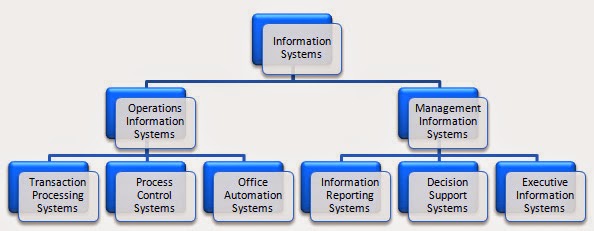Incorporating high paying keywords into your site is critical to maximizing your income. Who has the time to figure it all out? How much are you willing to pay for this type of information? The secret is out: Here are 99 keywords you can use with payouts averaging $2-$100 per click:
1. Structured settlements
2. Mesothelioma
3. Acne
4. Life Insurance
5. Death Insurance
6. Bextra
7. Asbestos
8. Car Insurance
9. Dental Plans
10. Private Jets
11. Debt Consolidation
12. Credit Cards
13. Rewards Cards
14. Equity Loans
15. Equity Line Credit
16. Loans
17. Mortgages
18. Pay Day Loans
19. Cash Advance
20. Bankruptcy
21. Reduce Debt
22. Refinance
23. Jet Charter
24. Vioxx
25. Wrongful death
26. Legal Advice
27. Taxes
28. Investing
29. Bonds
30. Online Trading
31. IRA Rollover
32. Refinance Quotes
33. Adult Education
34. Distance Learning
35. Alcohol Treatment
36. Rehab
37. Drug Rehab
38. Spyware
39. Cell Phone Plans
40. Calling Cards
41. VOIP
42. Weight Loss
43. Canadian Pharmacy
44. Depression
45. Spam Filter
46. Lasik
47. Facelift
48. Teeth Whitening
49. Annuity
50. Anti Virus Protection
51. Adult Diaper
52. Free Credit Report
53. Credit Score
54. Satellite
55. Anti Spam Software
56. Dedicated Hosting
57. Domain Name
58. Need Money
59. Bachelor Degree
60. Master Degree
61. Doctorate Degree
62. Work at Home
63. Quick Book
64. Extra Money
65. Eloan
66. Malpractice Lawyer
67. Lenox China
68. Cancer
69. Payperclick
70. Personal Injury Attorney
71. Lexington Law
72. Video Conferencing
73. Transfer Money
74. Windstar Cruise
75. Casinos Online
76. Term Life
77. Online Banking
78. Borrow Money
79. Low Interest Credit Cards
80. Personal Domain Name
81. Cellular Phone Rental
82. Internet Broker
83. Trans Union
84. Cheap Hosting
85. University Degrees Online
86. Online Marketing
87. Consolidate
88. Helpdesk Software
89. Web Host
90. Homeowner's Insurance
91. Yellow Page Advertising
92. Travel Insurance
93. Register Domain
94. Credit Counseling
95. Email Hosting
96. Business Credit
97. Consumer Credit
98. Blue Cross
99. Laptop Computer
Actual payouts vary depending on whose PPC program you belong to and on the amount that has been bid per click by advertisers. Still, the savvy web administrator will take good care to incorporate some of these key words and reap results higher than they ever expected. http://Infosdemocracy.com
1. Structured settlements
2. Mesothelioma
3. Acne
4. Life Insurance
5. Death Insurance
6. Bextra
7. Asbestos
8. Car Insurance
9. Dental Plans
10. Private Jets
11. Debt Consolidation
12. Credit Cards
13. Rewards Cards
14. Equity Loans
15. Equity Line Credit
16. Loans
17. Mortgages
18. Pay Day Loans
19. Cash Advance
20. Bankruptcy
21. Reduce Debt
22. Refinance
23. Jet Charter
24. Vioxx
25. Wrongful death
26. Legal Advice
27. Taxes
28. Investing
29. Bonds
30. Online Trading
31. IRA Rollover
32. Refinance Quotes
33. Adult Education
34. Distance Learning
35. Alcohol Treatment
36. Rehab
37. Drug Rehab
38. Spyware
39. Cell Phone Plans
40. Calling Cards
41. VOIP
42. Weight Loss
43. Canadian Pharmacy
44. Depression
45. Spam Filter
46. Lasik
47. Facelift
48. Teeth Whitening
49. Annuity
50. Anti Virus Protection
51. Adult Diaper
52. Free Credit Report
53. Credit Score
54. Satellite
55. Anti Spam Software
56. Dedicated Hosting
57. Domain Name
58. Need Money
59. Bachelor Degree
60. Master Degree
61. Doctorate Degree
62. Work at Home
63. Quick Book
64. Extra Money
65. Eloan
66. Malpractice Lawyer
67. Lenox China
68. Cancer
69. Payperclick
70. Personal Injury Attorney
71. Lexington Law
72. Video Conferencing
73. Transfer Money
74. Windstar Cruise
75. Casinos Online
76. Term Life
77. Online Banking
78. Borrow Money
79. Low Interest Credit Cards
80. Personal Domain Name
81. Cellular Phone Rental
82. Internet Broker
83. Trans Union
84. Cheap Hosting
85. University Degrees Online
86. Online Marketing
87. Consolidate
88. Helpdesk Software
89. Web Host
90. Homeowner's Insurance
91. Yellow Page Advertising
92. Travel Insurance
93. Register Domain
94. Credit Counseling
95. Email Hosting
96. Business Credit
97. Consumer Credit
98. Blue Cross
99. Laptop Computer
Actual payouts vary depending on whose PPC program you belong to and on the amount that has been bid per click by advertisers. Still, the savvy web administrator will take good care to incorporate some of these key words and reap results higher than they ever expected. http://Infosdemocracy.com
